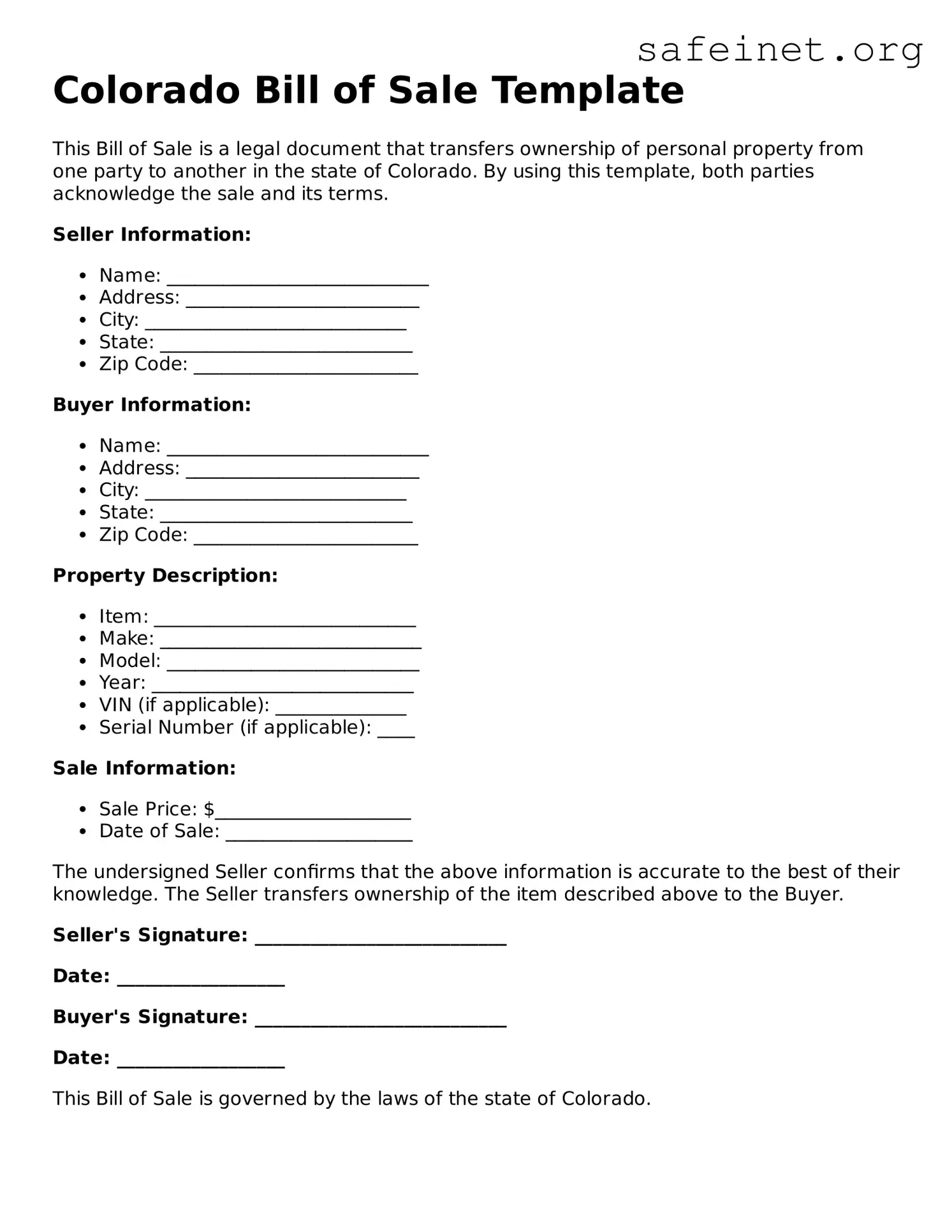What is a Colorado Bill of Sale form?
A Colorado Bill of Sale is a legal document that records the transfer of ownership of personal property from one party to another. It serves as proof that a sale has occurred and can detail what items were sold, their condition, and the sale date. While it is not always required by law, having a Bill of Sale can protect both the buyer and seller in case of any disputes that arise regarding the transaction.
When do I need a Bill of Sale in Colorado?
You should use a Bill of Sale when you sell or buy personal items of significant value, especially vehicles, antiques, or equipment. While not always mandatory, it is advisable when transferring ownership to provide clarity on the transaction, document the terms agreed upon, and establish proof of payment. Additionally, if you are transferring ownership of a vehicle, a Bill of Sale is typically required during the registration process.
How do I complete a Colorado Bill of Sale?
To complete a Colorado Bill of Sale, include specific information such as the names and addresses of the buyer and seller, a detailed description of the item(s) sold including any identification numbers or marks, the sale price, and the date of the transaction. Both parties should review the document carefully before signing. It’s also wise to keep a copy for your records after the transaction is finalized.
Is a Bill of Sale legally binding in Colorado?
Yes, a Bill of Sale is legally binding in Colorado once it is signed by both parties. By signing the document, both the buyer and seller agree to the terms outlined within, creating an enforceable agreement. However, for added security, you may want to have the document notarized. This can provide an extra layer of authenticity and prevent potential disputes.
Do I need to have the Bill of Sale notarized?
Notarization of a Bill of Sale is not required in Colorado for most personal property transactions. However, having it notarized can strengthen its validity and serve as a safeguard for both parties. If you are dealing with significant assets or if either party has concerns about the transaction, it might be a good idea to consider notarization to ensure all details are clear and agreed upon.
